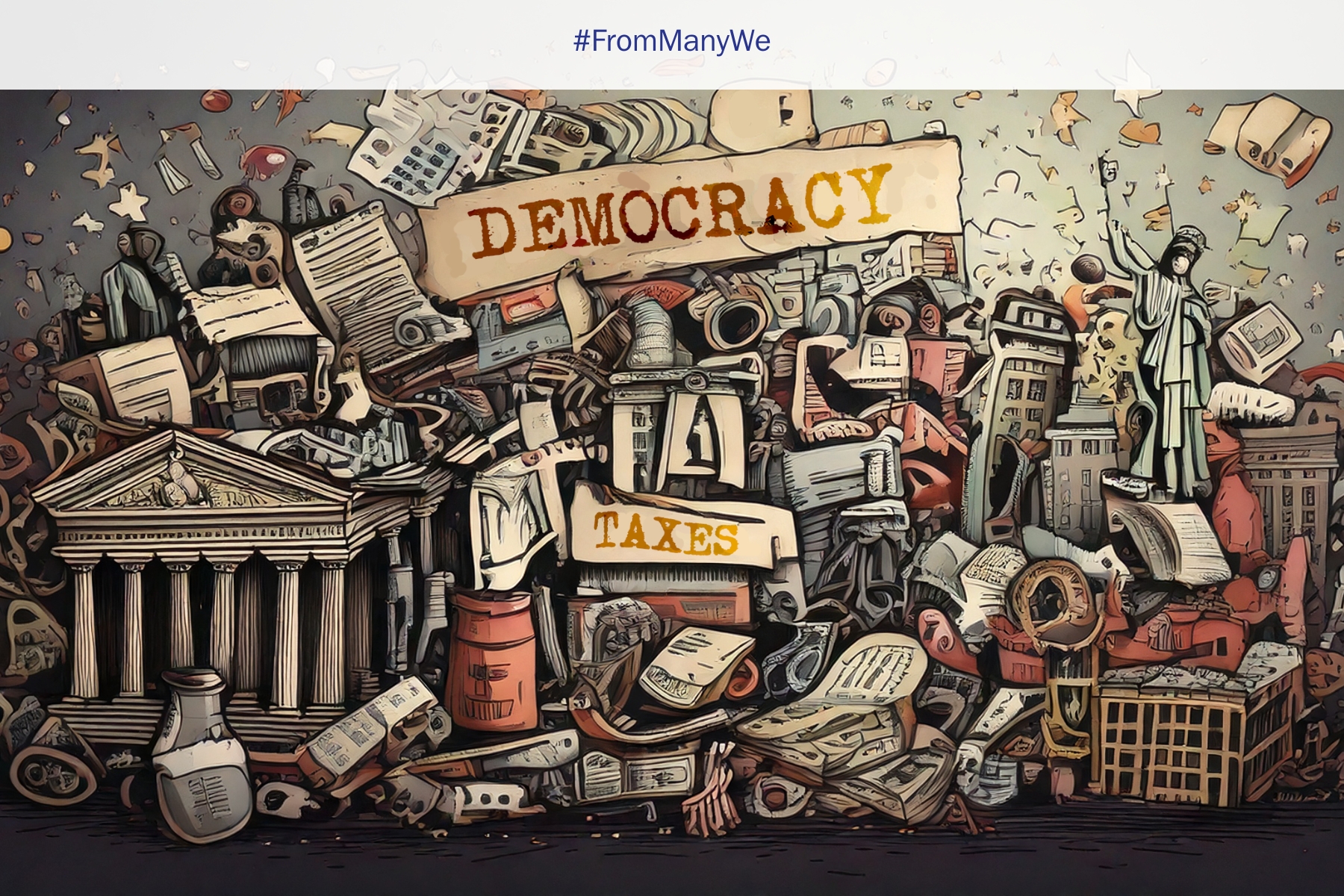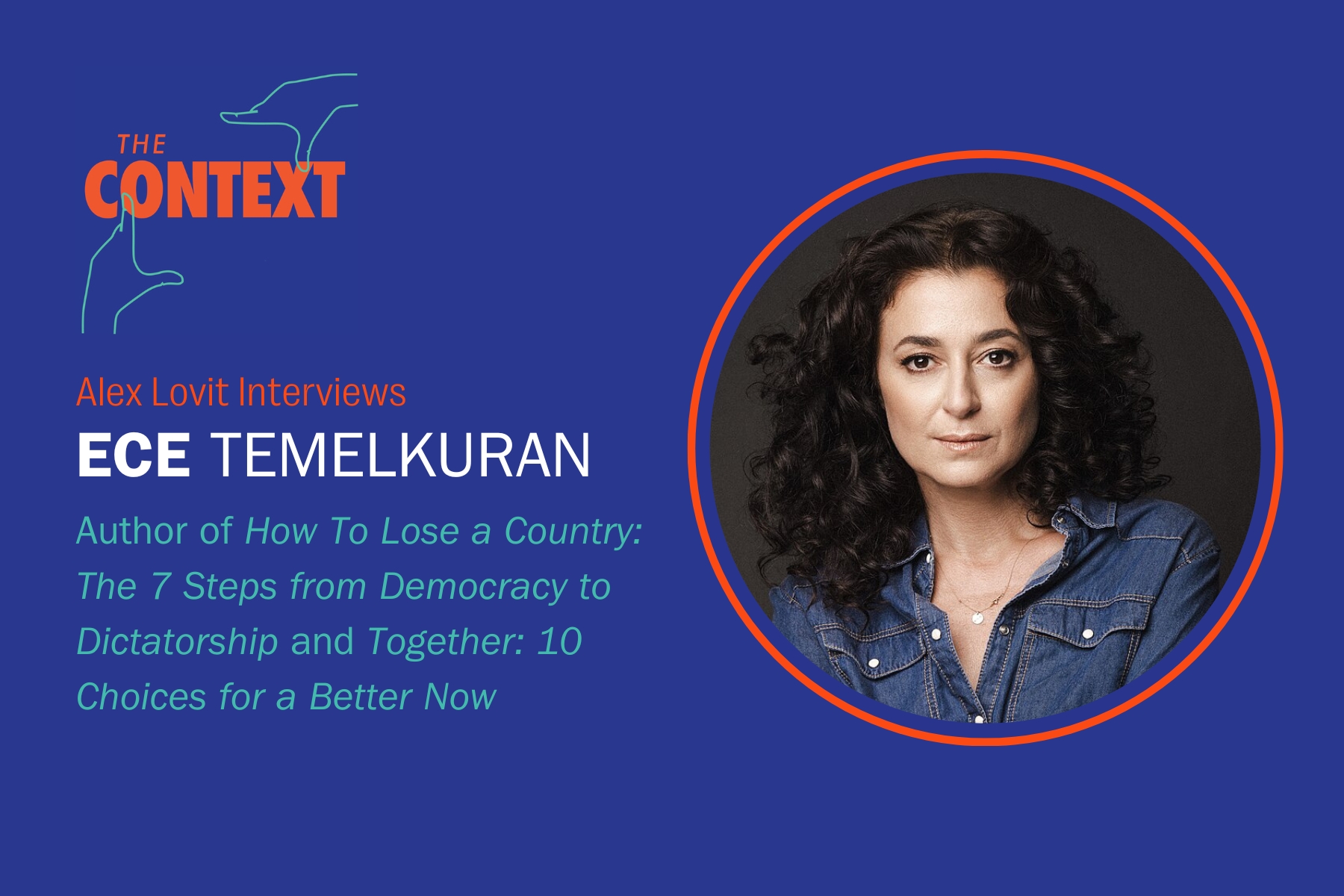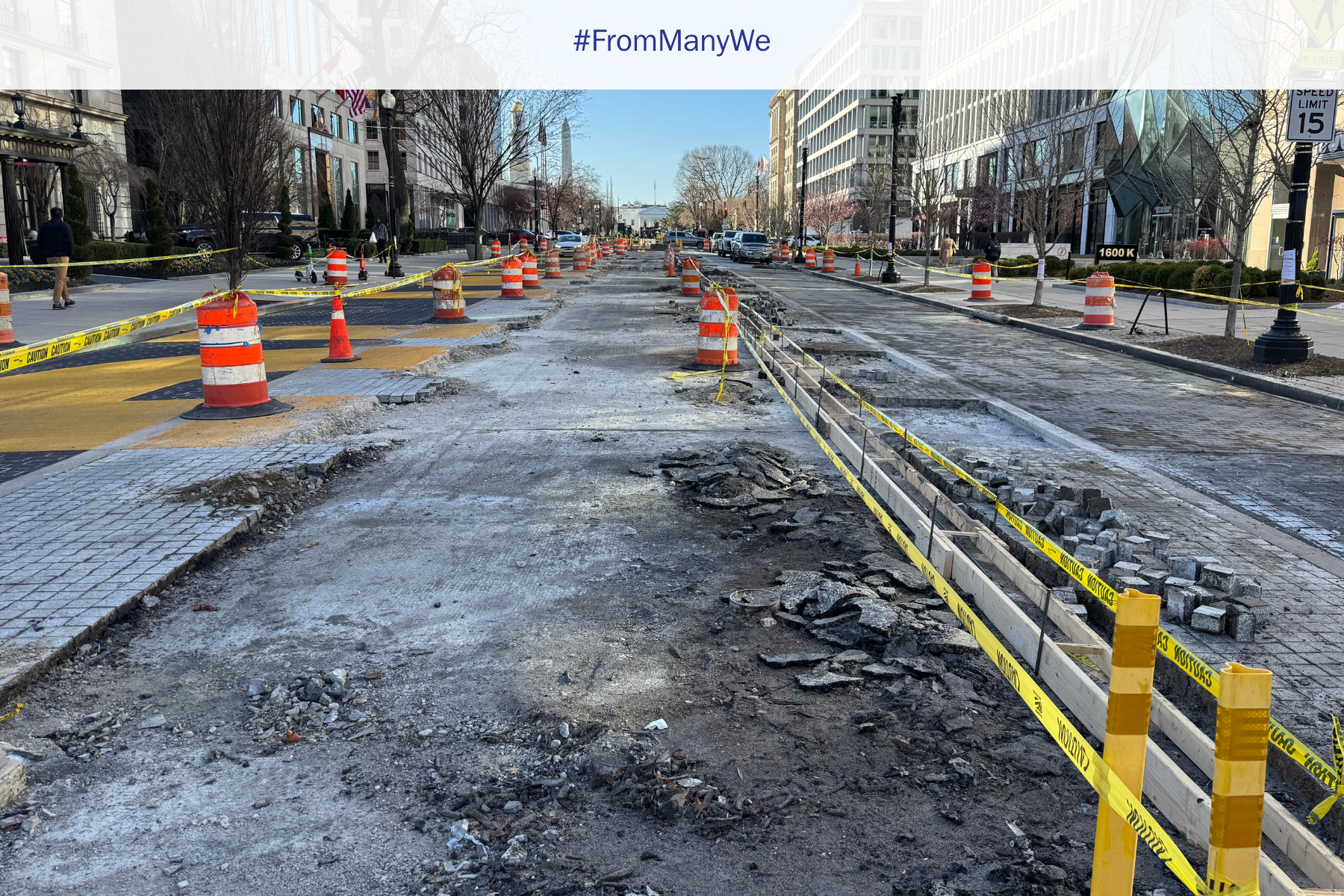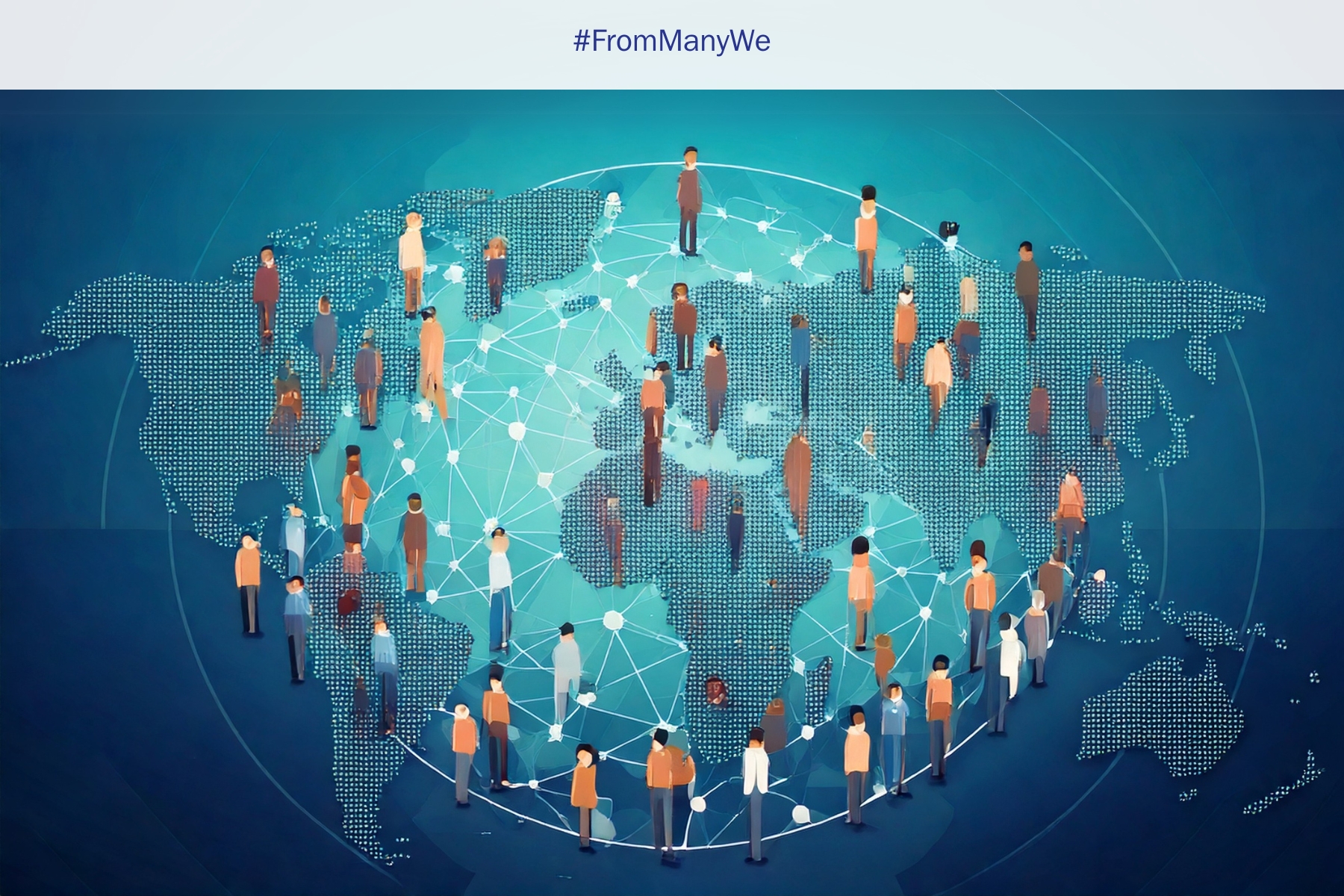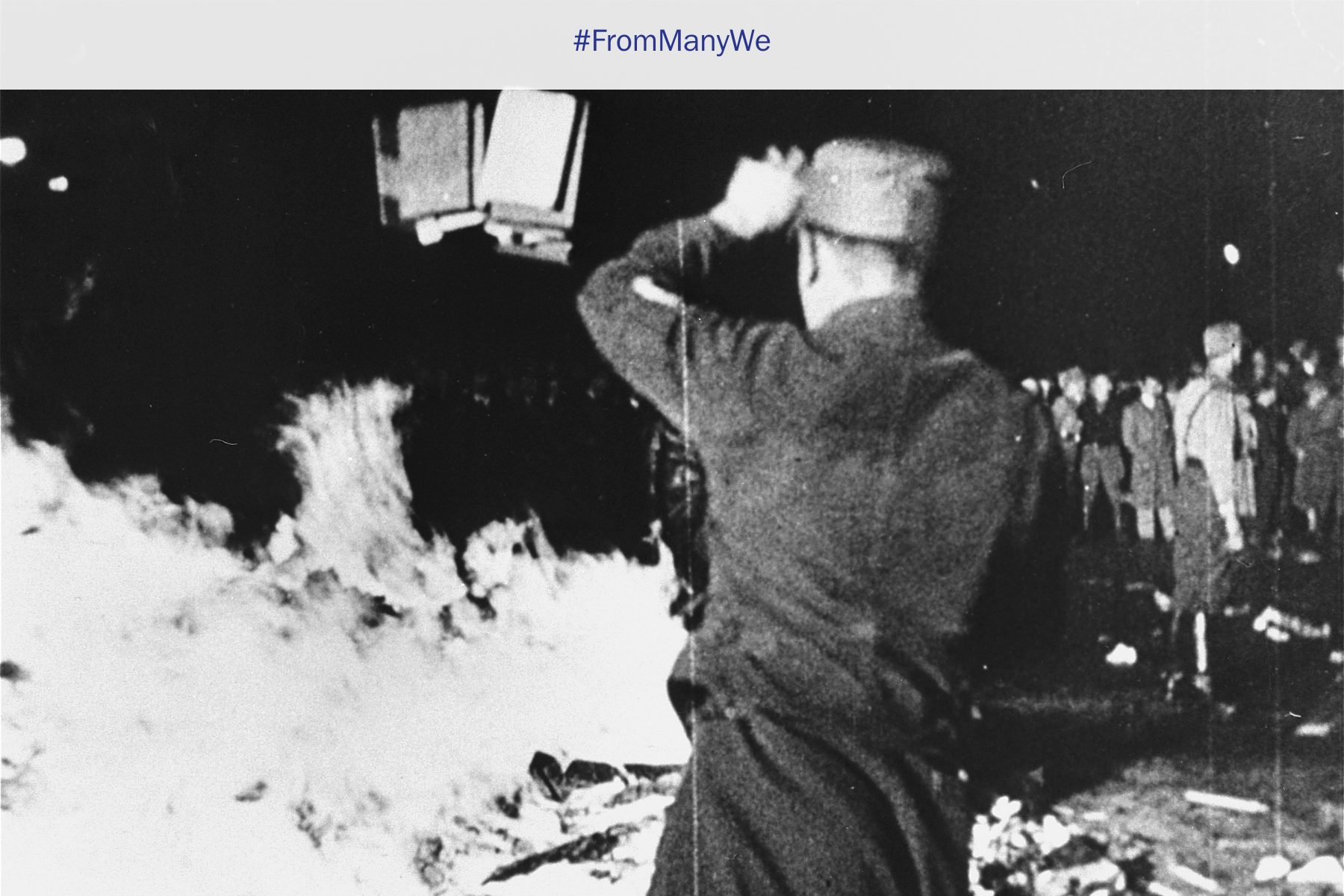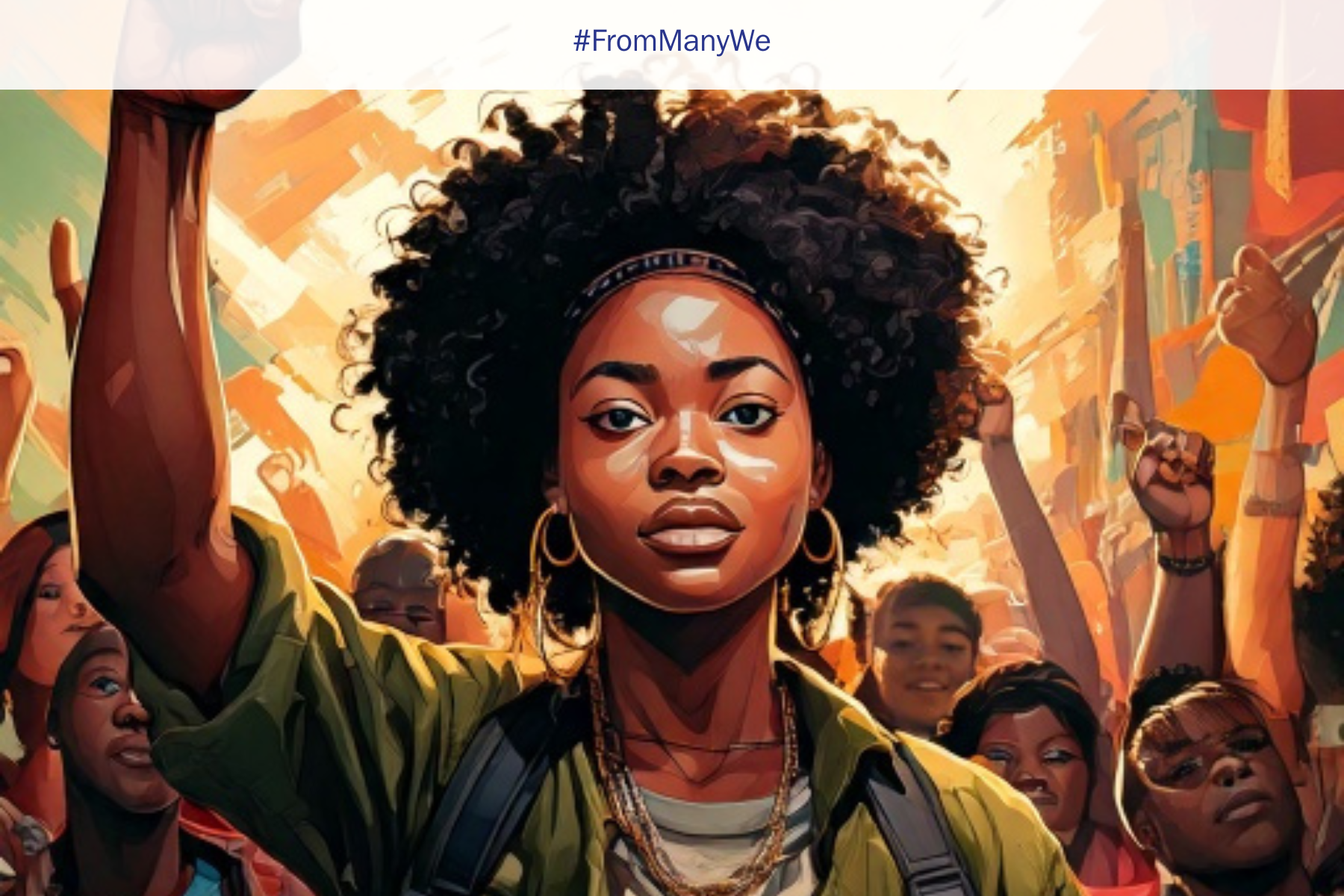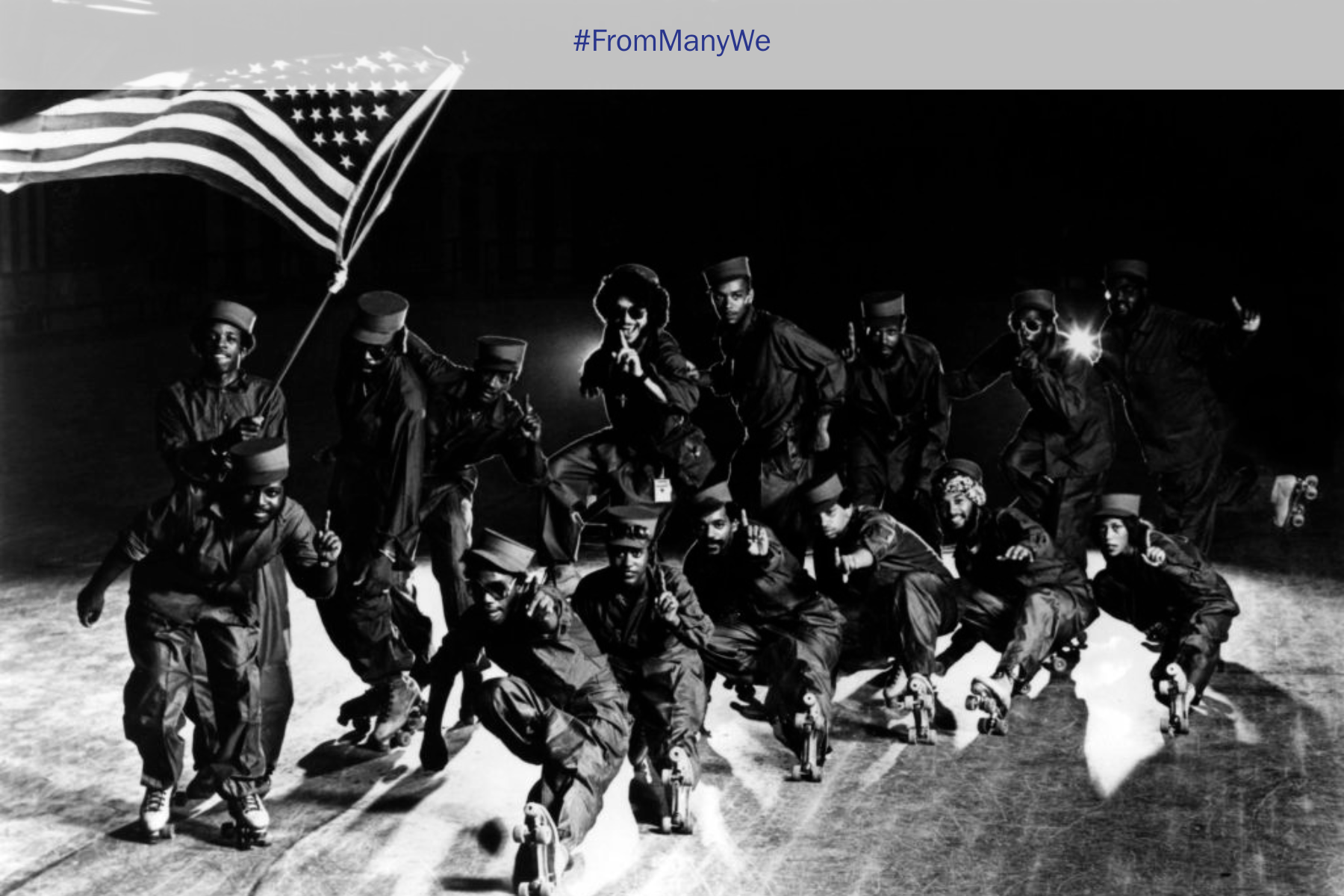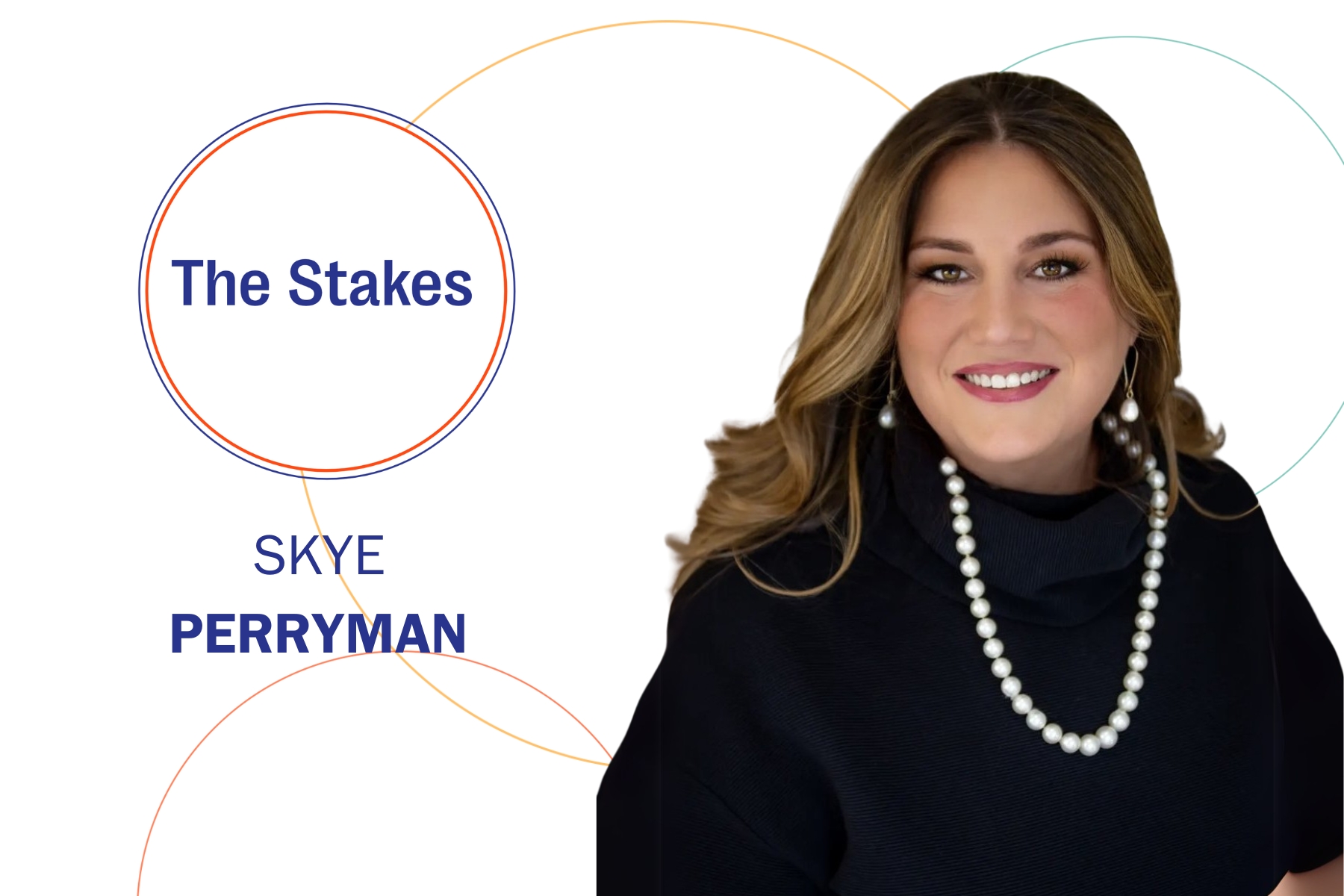South Africa’s Elections Are a Warning Sign for Democracy
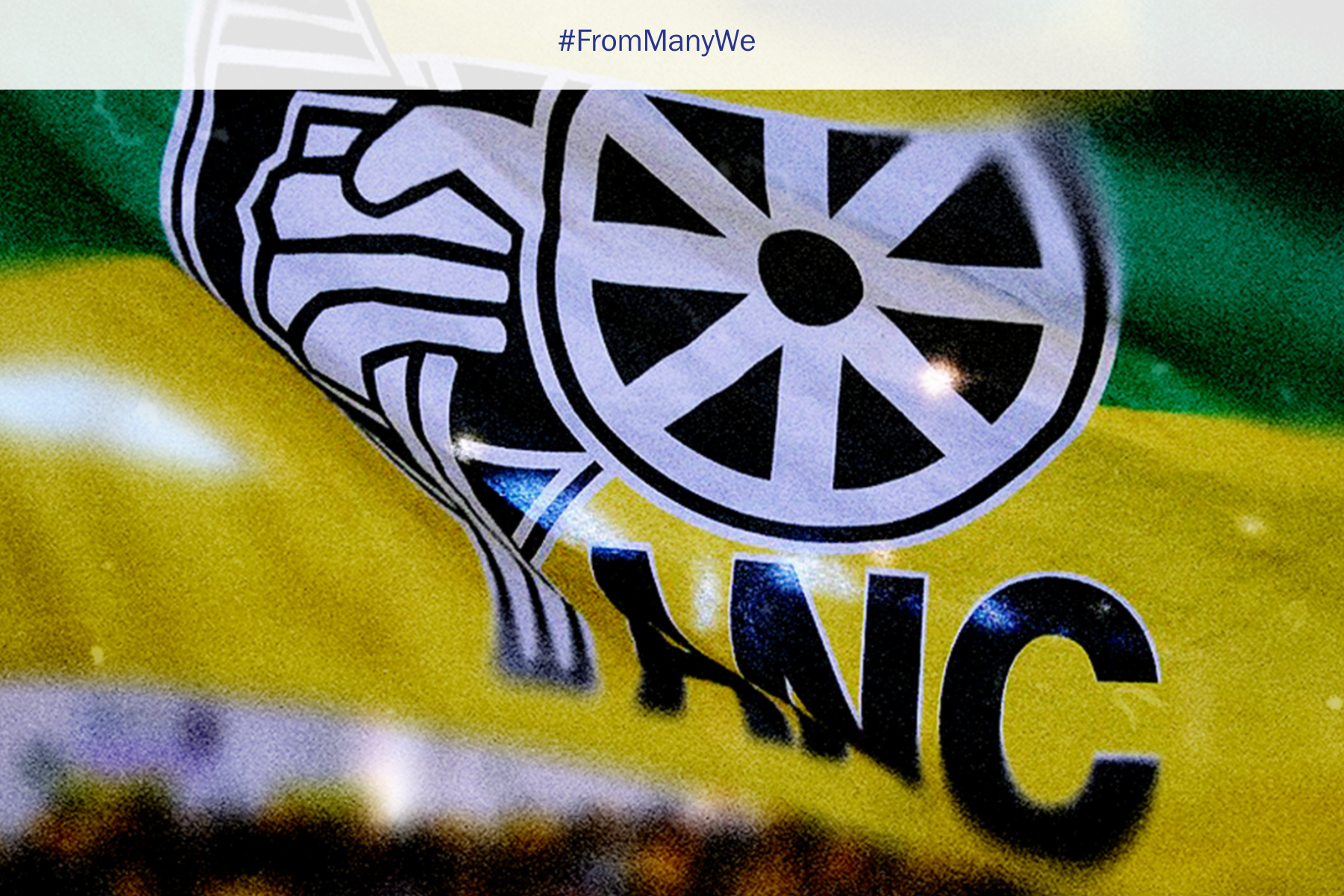
In 1994, the world watched South Africa’s first democratic election, celebrating the victory of Nelson Mandela’s African National Congress (ANC). This year, for the first time in three decades, the ANC lost its majority amid growing frustrations with the party’s ability to deliver on its promises. Tendai Murisa warns that without a commitment to inclusive economic development and democratic governance, South Africa’s 30-year-old democratic project is in danger. The disillusionment mirrors what we are seeing elsewhere at this time of democratic backsliding around the world.
Nelson Mandela remains the most iconic figure in South African politics, but the party he led, the ANC, is in trouble. Since 1994, the party has not adequately addressed the promise of liberation: a better life for all. South Africa’s 2024 election results suggest the need for the ANC to reinvigorate governance reforms and to implement a more pragmatic approach to ensuring inclusive growth. Those results are sounding a warning to the ANC that the honeymoon with its traditional base is coming to an end.
The Election Results: Trouble for the ANC
The ANC’s 2024 performance is the worst it has been since 1994.
- The decline has been gradual. First, they secured 62.6% of the vote, 66.4% (1999), 69.7% (2004), then the drop began in 2009 at 65.9%, 62.2% (2014), and 57.5% (2019).
- In 2024, under the leadership of Cyril Ramaphosa, the ANC could only manage to secure 40.2% of the national vote, which was a decline from the 57.5% secured in the 2019 elections.
- Close to one million new voters registered for the 2024 elections. However, most of the possible new voters did not turn up to vote, and the ANC failed to receive a significant number of votes from those who did. There were 1.5 million fewer voters in 2024 than in 2019.
Breakaway Parties Gaining Ground
The ANC party has gone through significant internal splits that have led to three new breakaway parties. Starting in 2008, several leading ANC figures, such as Mosiuoa Lekota, Mbhazima Shilowa, and Mluleki George, broke away to form the Congress of the People in protests to the recalling of Thabo Mbeki from being state president. In 2012, the ANC expelled a number of leaders in its youth structures who were demanding that then-President Jacob Zuma stand down after a number of allegations of corruption against him. These leaders formed the Economic Freedom Fighters with a very radical ideology calling for the redistribution of land, nationalization of the economy, and many other left-of-center political positions. In December 2023, former President Zuma, together with others, formed the MK Party, also known as uMkhonto weSizwe.
These three breakaway parties secured 24.1% of the national vote in the May 29 elections, more than the second largest party, the Democratic Alliance, which secured 21.8%. The May elections demonstrate the growing role of alternative parties, but the results also suggest this election was more about the ANC’s repeated failure to maintain voter confidence.
Economic and Democratic Discontent
There are many other internal and external factors that explain the decline in popularity of Africa’s first liberation movement. Over the years, the ANC has demonstrated that they are not the best stewards of the economy. President Ramaphosa’s first term (2019–2024) has probably been the worst in terms of addressing issues of inclusive economic growth. In the first 15 years (1994–2008) of democratic rule, the economy grew by an average of 3.6% but was followed by a collapse to 1.2% from 2009 to 2023. Many expected President Ramaphosa to perform better than his predecessor, but he was worse. Under President Zuma, the economy grew by 1.9% a year, while under President Ramaphosa it grew by 0.5%. Unemployment, especially among the youths (even university graduates), peaked under President Ramaphosa. Stats SA indicates a 45.5% unemployment rate among young individuals (aged 15–34 years), in contrast to the national average of 32.9% in the first quarter of 2024. Yet President Ramaphosa was touted as a more business-friendly leader.
Moreover, the party has done very little to address the aspirations of many for the deepening of democracy and achieving development. Instead, the country is facing governance challenges, ineffective delivery of public services, increased cases of corruption within the ANC leadership, incoherent policy frameworks, and a reluctance or inability to effectively deal with historical inequalities. These failures are a major threat to the achievement of lasting democracy and equitable development.
Various tiers of government are failing to adequately discharge their duties. For example, the auditor general’s report (2019/2020) notes that out of 257 municipalities, only 27 received clean audits. The 22 worst-performing municipalities could not account for funds amounting to ZAR 5.5 billion.
In an attempt to stem the tide of corruption, the government of South Africa established the Zondo Commission to investigate the extent and incidences of state capture for private benefit. Among its many findings, the Zondo Commission found that:
State capture in the South African context evolved as a project by which a relatively small group of actors, together with their network of collaborators inside and outside of the state, conspired systematically (criminally and in defiance of the Constitution) to redirect resources from the state for their own gain. This was facilitated by a deliberate effort to exploit or weaken key state institutions and public entities, but also including law enforcement institutions and the intelligence services.
These critical findings point to the potential hijacking of achieving an inclusive democracy and a more equitable and just society. Furthermore, South Africa remains the most unequal country in Africa. Rural and urban poverty are on the increase. Unemployment is on the rise. The country is referred to as the protest capital of the world due to the high number of protests that take place within it. For instance, there were 67,750 police-recorded protests between 1997 and 2013. This equates to an average of roughly 11 protests per day. Most protests are over failures to ensure delivery of public services.
Free Elections Must Translate to Democratic Governance
Despite the significant loss that the ANC has suffered, they should still be credited for restoring faith in the election management process. Zimbabwe, South Africa’s neighbor to the north, had dented the credibility of elections in the Southern Africa Development Community region. To a certain extent, South Africa’s election has demonstrated that African countries can hold free and fair elections. The lasting lesson from the 2024 poll is that free and fair elections are not enough to establish democracy. Election results must translate into democratic governance with inclusive economic development policies.
Tendai Murisa is a researcher and development practitioner focusing on democracy and governance across Africa. He has been a fellow of the Kettering Foundation in 2013 and 2018. He is the founder and executive director of the SIVIO Institute. (www.sivioinstitute.org)
From Many, We is a Charles F. Kettering Foundation blog series that highlights the insights of thought leaders dedicated to the idea of inclusive democracy. Queries may be directed to fmw@kettering.org.
The views and opinions expressed by contributors to our digital communications are made independent of their affiliation with the Charles F. Kettering Foundation and without the foundation’s warranty of accuracy, authenticity, or completeness. Such statements do not reflect the views and opinions of the foundation which hereby disclaims liability to any party for direct, indirect, implied, punitive, special, incidental, or other consequential damages that may arise in connection with statements made by a contributor during their association with the foundation or independently.
